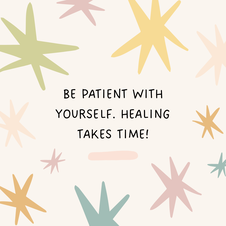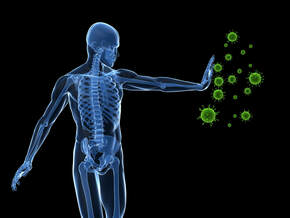Health Tips, Thoughts and Inspirations
The content of this blog will vary, dependent on the topic I feel led to share with you. My prayer is that it will be a blessing to those who choose to read it.
 When people come to me for help with digestive challenges, the first thing I look for is their Source of Stress or SOS. Each person has their situation and history. That stress root may be mechanical, emotional, or nutritional. One thing that most people have in common is the need to work on lifestyle choices. We can unknowingly be doing things daily that are roadblocks to our healing. It may be diet, lack of exercise, dehydration, emotional stress, medications, or sleep deprivation, just to name a few. This always brings the question, WHERE DO I START? I like to encourage my clients to start with the small, simpler things that can help them begin their journey to healing their gut. Yes, I can recommend appropriate supplementation in the form of specialized enzymes and probiotics. These things will help, but eliminating the issue at hand is still a vital piece of your healing. Since the big picture can sometimes be overwhelming, I have created a Daily Gut Health Checklist to give you a few applicable life hacks. This valuable checklist can be downloaded as a PDF, printed out, and used to give you some direction. Begin with the changes that seem to resonate with you most, starting with 1-2 habits at a time. After you feel you have those changes solidified in your daily habits, perhaps you will want to add another! And if you need some encouragement or guidance along the way, I am here to help you in whatever way you need. Nothing makes me happier than seeing clients feeling better, having more energy, and being free of the pain and bloating that come from an unbalanced gut. If you would like to download this FREE Gut Health Checklist, you may do so by visiting THIS LINK. May it be a blessing to you!  The world we live in seems to have been turned on it's head in the past two years. At least, that's how it appears. However, things have been upside down for decades, perhaps longer. It may be that now it is more in our face, for those who are paying attention. This can create an onslaught of stress, mostly in the form of fear. Fear of what's coming next, the never ending claims of harder times coming our way. Gas prices, shortages, health threats...the list goes on and on. Although I do not watch the mainstream "news," there is still plenty of fear mongering going on everywhere a person looks. So what do we do? How do we navigate through these challenging times? Truth is, we have all had hard times in our lives. Yes, this is global. Yes, there is untold things/people behind it that we cannot fathom. But, there have been hard times before and most of us can list numerous personal traumas. Here is what I've found. I cannot count on the world to save me. I certainly cannot look to the government to save me. I cannot count on any human to save me. Even people who I thought would be there when I needed support, clearly were not. Understand that I am not faulting them. This was never their place. We are human and we fail. I have failed others more times than I care to count. Some of those would be more than happy to tell you about it. ;-) Through all of the most painful times of the life, when others abandoned me, it taught me the most important lesson of my life. There is ONE who is always with me, will never forsake me, and has never let me down. He is my Comforter, Savior, Redeemer, and my Hope. He is my Prince of Peace. He has never abandoned me or rejected me. His name is Yeshua. You may know him as Jesus. He is the Rock on which we should build our lives. I am not talking about attending a particular church building, or joining a specific denomination. No. That's not what any of it is about. Sitting in a pew every week doesn't make us His. Scripture says, "That if you confess with your mouth the Master יהושע (Yeshua) and believe in your heart that Elohim has raised Him from the dead, you shall be saved. For with the heart one believes unto righteousness, and one confesses with the mouth, and so is saved. Because the Scripture says, “Whoever puts his trust in Him shall not be put to shame.” Because there is no distinction between Yehuḏite and Greek, for the same Master of all is rich to all those calling upon Him. For “everyone who calls on the Name of יהוה (Yahweh) shall be saved.” (Romans 10:9-13) Please know that this is not, "say a 20 second prayer and then go on with your life." It is a total turn around, a commitment from the heart that permeates everything. It's a life change. And if all this seems completely overwhelming and confusing, please reach out to someone who you KNOW is following Yeshua (Jesus) and living for Him. There is much to this decision, this walk, and it begins with the first step. Yes, challenging and more trying times are ahead. Maybe it will be global. Maybe it will be personal, Maybe it will be both. We can't know what's coming. But we can know that without faith in Him, faith in our Creator (Yahweh) and His Son (Yeshua/Jesus), whose Hebrew name literally means "Salvation," none of us are going to make it. Regardless of how much we have "prepared" in the physical, preparing in the spiritual needs to be done above all else. I pray this has blessed you, encouraged you, and given you hope. Whether it's the physical, emotional, or spiritual aspect of health you need encouragement and help in, please reach out. You are greatly loved, by the One who created you. I pray that if this is a new thought for you, you will search it out. If you were once on fire for Him and turned away, that this a call to teshuva (repentance). Take that first step, whatever it is for you. Begin with His Word, the Bible, at the very beginning and all the way through to the end. This is His love letter to you. "Yahweh bless you and guard you; Yahweh make His face shine upon you, and show favour to you; Yahweh lift up His face upon you, and give you peace.” (Numbers 6:24-26) Fluctuating moods are normal. Feeling lethargic after a long day, the ever-growing pressures of keeping up with work, family, relationships, health, irritability close to menstruation, and prolonged sadness after a personal loss or trauma are all natural (although perhaps less desirable) shifts in mood. There are thousands of reasons our moods can fluctuate, but what happens when you can’t figure out why you’re feeling down? What happens when your lethargy feels constant, your irritability continuous and your moods shift from one to the next as though they have a life of their own?
Then it’s time to look a little deeper into the possible root causes. Hormonal imbalance in all genders, a condition that comes up often in clinical practice, counts malaise and mood swings as common concerns. Such imbalances often go undetected in conventional medical care yet feature high on our list of suspects in holistic care. In this article, we’ll discuss some effective actions you can take to help keep your hormones in balance and get your life back on track. Common Reasons Hormones Fall Out of Balance Maintaining the delicate balance of hormones is key to optimal health and longevity, and even a slight imbalance can cause undesirable side effects. Modern life is rife with hormone disruptors that can contribute to hormonal imbalances that in turn often lead to mood fluctuations. Here are some of the most common factors that can affect hormonal balance: ● Stress The hormone cortisol is released into our system when we experience stress. If that stress continues over the long term without significant times of rest it can exacerbate health issues, particularly anxiety and depression, and cause an imbalance in hormone production in the body. ● Nutrition Nutrient deficiencies due to digestive issues or a diet that is high in processed foods and/or low in nutrients can disrupt the body’s ability to build hormones and maintain balance. ● Weight Gain Stubborn weight gain is one of the more common signs of a hormonal imbalance, potentially being eventually attributed to thyroid imbalance, PCOS or perimenopause. However, excess weight in itself can contribute to an imbalance as visceral fat reduces the body’s sensitivity to insulin and may also contribute to high estrogen levels. ● Menopause & Perimenopause A decrease in estrogen levels as women get older can disrupt testosterone and progesterone levels, affecting the entire body. Hot flashes, sleepless nights, mood swings and anxiety are some of the most common symptoms of a hormonal imbalance experienced during menopause. ● Pharmaceuticals It is well known that steroids and opioids have the potential to disrupt hormones, causing such symptoms as testicle shrinkage in men and male pattern baldness in women. The birth control pill, HRT and fertility meds are also candidates, as synthetic hormones may bind to the wrong receptors, which could bring on an imbalance. Manage Stress to Help Balance Your Hormones & Your Mood Managing your stress levels is one of the most important things you can do to support your mood as well as your hormonal balance and break the cycle. The following key factors have been shown to make a difference in our ability to be more emotionally balanced and to adapt better to the stressors in our lives: Sleep Hygiene Just like the health of your teeth is dependent on good oral hygiene, the quality of your sleep is dependent on good sleep hygiene. Sleep hygiene, at its core, is the sum of behavioural and environmental factors that promote regular, good sleep where you wake up feeling refreshed every morning. Here are our suggestions for sleep hygiene:
An anti-inflammatory diet that is nutrient dense, low in sugar, and high in probiotic foods can go far to help manage your stress levels. The links between stress, anxiety, inflammation and the microbiome of your gut are well known. The following suggestions can help keep inflammation and your gut microbiome balanced:
Regular physical activity helps reduce stress. It stimulates your feel-good endorphins and helps you sleep better at night. It is generally recommended to do 30 minutes of daily, moderate exercise to keep your stress levels in check. This can include anything from a walk in your neighborhood, to dancing in your kitchen, to playing soccer. What’s most important is that you keep moving and, ideally, you do something that brings joy. Setting Boundaries Determining and enforcing clear and consistent boundaries in both our personal and professional lives is particularly important during times of high stress. Setting boundaries around your physical space, your feelings, needs, and responsibilities helps to maintain emotionally safe personal and professional lives, and plan how to respond when your boundaries are encroached upon or broken. Boundaries act as a stress buffer, keeping us from falling into negative-rumination, mood swings, and patterns of abuse. Mindfulness & Self-Compassion A regular practice of mindfulness helps build an inner strength that makes us more resilient to stress. A regular practice of self-compassion helps us to not suffer when we don’t meet our own expectations of managing stress. Try journaling about what went well and what was positive at the end of each day. Together, mindfulness and self-compassion are powerful tools that can drastically increase our resilience, reduce our stress levels, and balance our moods. Get a Hormone Check-Up If lifestyle changes are proving difficult or are not making the difference you had hoped, working with a natural health practitioner is a good next step towards rebalancing your hormones and your mood. Your Naturopath can help determine if there is any kind of imbalance. Your practitioner can then guide you through a tailored lifestyle, nutrition and supplement support plan based on your specific results. At times when your resilience to the ups and downs of life is lower than it should be, we can help. As a Naturopath practitioner, together we can identify and target your specific imbalances and begin your path to better long-term health. Book an appointment today. Call or email us at 320-841-0225, [email protected]. Be well, Tami Gabrielson, Naturopath Restoring Wellness References Ali SA, Begum T, Reza F. Hormonal Influences on Cognitive Function. Malays J Med Sci. 2018;25(4):31-41. doi:10.21315/mjms2018.25.4.3 Childs E, de Wit H. Regular exercise is associated with emotional resilience to acute stress in healthy adults. Front Physiol. 2014;5:161. Published 2014 May 1. doi:10.3389/fphys.2014.00161 Firth J, Gangwisch JE, Borisini A, Wootton RE, Mayer EA. Food and mood: how do diet and nutrition affect mental wellbeing? [published correction appears in BMJ. 2020 Nov 9;371:m4269]. BMJ. 2020;369:m2382. Published 2020 Jun 29. doi:10.1136/bmj.m2382 Hiller-Sturmhöfel S, Bartke A. The endocrine system: an overview. Alcohol Health Res World. 1998;22(3):153-164. Moyer AM, Matey ET, Miller VM. Individualized medicine: Sex, hormones, genetics, and adverse drug reactions. Pharmacol Res Perspect. 2019;7(6):e00541. Published 2019 Dec 6. doi:10.1002/prp2.541 Ndefo UA, Eaton A, Green MR. Polycystic ovary syndrome: a review of treatment options with a focus on pharmacological approaches. P T. 2013;38(6):336-355. Ranabir S, Reetu K. Stress and hormones. Indian J Endocrinol Metab. 2011;15(1):18-22. doi:10.4103/2230-8210.77573 Ray JA, Kushnir MM, Meikle AW, Sindt JE, Strathmann FG. An exploratory study Evaluating the impact of opioid and non-opioid pain medications on serum/plasma free testosterone and free estradiol concentrations. Drug Test Anal. 2017 Oct;9(10):1555-1560. doi: 10.1002/dta.2174. Epub 2017 Mar 31. PMID: 28182836. University of Illinois at Urbana-Champaign, News Bureau. (2020, June 25). Control over work-life boundaries creates crucial buffer to manage after-hours work stress. ScienceDaily. Retrieved June 7, 2021 from www.sciencedaily.com/releases/2020/06/200625122734.htm Yazdi Z, Loukzadeh Z, Moghaddam P, Jalilolghadr S. Sleep Hygiene Practices and Their Relation to Sleep Quality in Medical Students of Qazvin University of Medical Sciences. J Caring Sci. 2016;5(2):153-160. Published 2016 Jun 1. doi:10.15171/jcs.2016.016 
The onset of COVID-19 changed the world’s daily hygiene practices in ways we have never seen before. From regularly wearing masks in public to practicing consistent “social distancing” to slathering our hands with sanitizer throughout the day. Ironically, we’re now at a stage where scientists are questioning the long-term effects of these practices on the immune system. In fact, it is likely that they are causing more harm than good. Long-term immunity is built as the immune system becomes stronger by reacting to bacteria, fungi, parasites, and viruses that pose a threat to our health. By severely restricting our exposure to these microbes by regularly sanitizing our environment, we risk the lack of creating our usual natural immunity to common bacteria and viruses. Emotions also have a profound impact on our immunity. Loneliness, stress (particularly chronic stress), and depression can lower our resilience to these same microbes. The lifestyle changes, isolation, and financial insecurity of the pandemic have not only affected our daily lives, but they have also impacted our immunity and overall health. Supporting our natural immunity needs to be at the top of our minds right now as we prepare for the colder weather and lack of sunshine. By focusing on what we can control (i.e., being in top physical condition with sharp mental health), we can maintain a strong first line of defense during these challenging times. Lifestyle Habits that Support a Healthy Immune System When it comes to strengthening and supporting a healthy immune system, aim for improvement, not perfection. Trying to achieve perfectionism at a time like this will only create more stress, which (as we know) directly and negatively impacts immunity. So be kind to yourself and try one or more of our lifestyle recommendations at a pace that works for you. 1. Practice Hand Hygiene Continue to regularly wash your hands properly to prevent spreading germs. Incidences of the flu decreased dramatically during recent lockdowns, likely in part due to hygiene practices being more strictly followed. Regular handwashing with natural soap and water when leaving and entering your home or workplace is a great primary strategy when it comes to protecting yourself and your family from contracting an illness, and no harsh chemicals are necessary. Hand sanitizer is meant to be your back up, and it shouldn’t replace normal handwashing when available. 2. Reduce Exposure to Media The voices of the media, including mainstream and social media, are filled with fear inducing “alerts.” Living in a constant state of panic, or fight-or-flight, raises cortisol which will affect every function of the body. Turn off the TV, get off the social media platforms, and reduce exposure to negative influences (including some people!). Get back to the simple things of reading a book, playing music, or favorite hobbies that have gone by the wayside. You may even find a new hobby that you enjoy! 3. Get The Sleep You Need Sleep is paramount to maintaining a healthy immune system, as the body performs many of its maintenance functions the sleep cycle. Aim to get a minimum of 7 hours of quality sleep each night. We recommend starting the practice of good sleep hygiene by going to bed at the same time every day, avoiding any screen time 1 hour before bed, and sleeping in a cool, dark, quiet room. 4. Stay Active Regular physical activity greatly helps to reduce stress and increases blood flow. In fact, a 2019 study showed how exercise mobilizes immune cells throughout the body to fight invading pathogens and reduce inflammation. Exercise also helps slow the effects of aging to keep the immune system strong. Aim to get at least 30 minutes of daily, moderate exercise to give your immune system the support it deserves. Going for a walk, a jog, or a bike ride, performing light strength training, or working out with an online fitness video are all great ways to stay active. 5. Stay Hydrated Staying hydrated is extremely beneficial, yet all too often it is overlooked. Water is the vehicle that assists vitamins to move between cells and helps those cells to detoxify while you sleep. Water flushes all the bad stuff out of your lymphatic and urinary systems. Being properly hydrated helps your immune system and strengthens your body’s main germ barrier — your skin, while helping to build strong hair and muscles. Aim to drink at least eight to ten 8-oz glasses of clean, fresh, preferably filtered water every day. If you aren’t a fan of water, then try adding a bit of lemon or lime, or both, which have immune-supportive and detoxifying properties in addition to being quite tasty. 6. Eat Foods that Your Body Needs Providing our bodies with the vitamins, minerals, and enzymes that our cells need daily helps to keep inflammation at bay and supports our immunity. Eat a wide variety of fruits, vegetables, lean proteins, and whole grains. Eat fermented foods, too, as they are rich in probiotics and enzymes that enhance gut health, which in turn supports healthy immunity. Limit processed foods (or ideally, eliminate them altogether). This includes refined sugar, sulfates, and foods laden with chemical additives and low-quality oils, in addition to avoiding alcohol. 7. Do Something You Love The “new (ab)normal” has caused a shift in what our daily lives look like. Added responsibilities have been placed on individuals, as we try to manage the hurdles the pandemic has brought to our lives. Despite this, finding something you love to do, and dedicating time to it every week, or even every day, can help you add more joy to your life. Studies show that smiling can activate the release of neuropeptides that help fight off stress. Making the conscious intent to do something you love and committing to it can greatly reduce stress and release those feel-good immune-supporting endorphins. Supplements that Support Immune Health The following supplements support a healthy immune system. Aim to buy the best quality supplements you can afford. When in doubt, speak with a qualified practitioner to help you assess which supplements are best for you. Most of these are also available at Restoring Wellness. :-) 1. Probiotics Probiotics contribute to healthy gut flora, which is paramount to good health, especially when you consider that 70% of the immune system is housed in the gut, and the mucous membrane of the digestive system is one of the main barriers we have against pathogens. You can directly help to create an environment in your body that soothes inflammation and fights infection for optimal digestive function maintenance by supporting your gut flora and following a healthy diet. 2. Vitamin D Research has shown that adequate vitamin D levels are crucial to good health. Vitamin D plays many roles in the body. Vitamin D supports the immune system, promotes a healthy inflammatory response, and supports a healthy mood. The prevalence of vitamin D deficiency is known to occur in individuals with autoimmune disease, and more than half of North Americans don’t get enough vitamin D. Extended time indoors, lack of sunlight during the winter, and an imbalanced diet can all contribute to vitamin D deficiencies for which supplementation is highly recommended. 3. Vitamin C Vitamin C is an essential nutrient, meaning that the body is not able to create it, and it must come from the diet. It is a powerful antioxidant, helping to protect cells from damaging free radicals. 4. Zinc Zinc is a mineral that plays many roles in supporting immune health and function. 5. Garlic Garlic is a pungent culinary herb, and its use in supporting the immune system is honored by time and science alike. Although eating garlic every day in the amounts needed to have a noticeable effect on immune health may not be realistic (think nose clip), taking an odorless supplement can be an effective measure. 6. Elderberry Elderberry, particularly elderberry syrup or tincture, is a potent herbal remedy that supports immune function. Elderberry isn’t meant to be taken daily as a supplement. Rather its properties are most supportive when taken only when needed and as soon as possible at the first sign of feeling rundown due to occasional stress. 7. Digestive Enzymes When your body doesn't have to stress with digesting your food, it can focus on defending you from outside influences. The only food that naturally contains enzymes is raw, uncooked. While including these healthful foods into your diet is paramount, most of us are eating mostly cooked items, which are more difficult for our body to process. 8. Quercetin Quercetin acts as an antioxidant, neutralizing free radicals—the chemical by-products that harm cell membranes and damage DNA. Available as a dietary supplement, quercetin also possesses antihistamine and anti-inflammatory properties. If you are in need of help finding quality supplements, you may enjoy shopping from my online dispensary below⬇⬇⬇ . Of course, you are always welcome to contact me directly. I have many of these available at my office. You’ve Got This! Staying on top of immune health is extra important. By being proactive and taking the precautionary measures that help to protect and support your healthy immune system, you can be prepared. If you are feeling run down and would like to discuss a tailored action plan to help keep your body functioning at its best, give me a call, I can help. References
 We often hear about why we should get our bodies moving on a regular basis, and that the benefits are numerous. I totally agree. This past week, I found out what some of these are for me personally, but in reverse. I usually work out 4-5 days a week, doing a variety of HIIT, strength training, cardio, and stretching. I have been tired to the point of complete exhaustion lately, so I decided to take a week off, thinking that perhaps my body needed a rest. It is good to get more rest at times, which I needed to do, but in the process I learned how much my body needs the daily movement in order to function properly. One week off of exercising taught me it's many benefits by showing me how quickly other things in my health can go backwards when I ignore this one piece. Personally, daily exercise goes a long ways in improving my mood and outlook on life. This is even more apparent the past few months. Lovingly moving your body in a way you enjoy releases serotonin and endorphins, chemicals that give you that "feel-good" feeling. How long do you have to exercise for this to take affect? Serotonin is released in about 30-45 minutes, while endorphins may take up to an hour. Most of my workout days are under one hour, but it is apparent that the 30-45 minutes are extremely beneficial for my overall ability to deal with life. A second negative effect I noticed was that I had even less energy and felt I needed to consume more coffee. In moderation, coffee can have some benefits, but it does need to be balanced out with quality water and other beverages. Coffee itself is dehydrating, increasing our need for water even more than we would normally have to consume to be at a healthy level of hydration. If you are someone who needs a lot of caffeine throughout the day, consider replacing one caffeinated beverage with the equal amount of water, gradually increasing your water intake and reducing other drinks. You will be amazed at the benefits! One of my most unsettling discoveries was the change in my digestion. If I don't move, my gut is quite unhappy. If our body slows down, our digestion slows down. A sedentary lifestyle can contribute to constipation, which in turn increases inflammation, toxins and pain. If this is a long term problem, we not only end up with toxins in our colon, but also in our bloodstream. Exercise, however, can improve blood flow, relieve stress, regulate weight and speed up metabolism, which can all contribute to a healthy, well-functioning digestive system. It has also been found that exercise can reduce the symptoms of gastrointestinal pain, including that linked to irritable bowel syndrome. How am I dealing with being too tired now? I am focusing on making it a priority to get to bed earlier and aiming for 7-8 hours of sleep. This means I have to turn off the electronics an hour before bedtime, quit trying to get more things done in the evening (they really can wait!), and avoiding anything disturbing such as news or social media at night. Exhaustion is one of the biggest concerns I hear in my office, but we can take measures to improve this. For me, cutting back on exercise definitely was not the answer! For another person, it may be necessary. Each individual has different circumstances and needs different answers. There is not a "one size fits all" when it comes to improving our health, and sometimes we need help finding out what our answers can be. It could be diet, hydration, stress management, sleep, movement, needing sunshine & fresh air or focusing on underlying issues to get to the root of things. This is where I can help! Personal consultation is a great tool for finding the cause and heading off bigger problems in the future. If you have questions about any of this, please reach out to me. I would be honored to help you!  Hello! Here I am on day 8. According to the booklet that comes with the OmniCleanse kit, days 6-9 can be the most challenging. For me, one of the hardest things is staying away from foods that I know will not help me to get the best results as I go through this process. Often, I am having to tell myself "You are not hungry. You don't NEED that!" This was more difficult over the weekend with family, but I was a whole lot happier with myself by pushing through it. Does it always go this way for me? NO! Definitely not! Knowing that I was going to be blogging about this detox has been a great help to keeping me on track, along with knowing that my sister is doing this along with me. I don't want to have to tell her that I ate/drank _______! Whenever you are aiming to make changes in your life, it always helps to have someone to hold you (lovingly) accountable. One thing that I have found that helps with cravings is to look for a healthy comforting food. This may be a favorite healthy recipe or simply a cup of warm tea with a bit of raw honey in it. It doesn't need to be complicated or overly time-consuming! For others, it may be that you're actually thirsty and need to drink more water. Perhaps a distraction of some light exercise is the answer for you. Each person is individual and has different needs. Find that "thing" that satisfies you without compromising what you are trying to accomplish! While I am happy to be a bit past the half way point, I am also looking ahead to the long term. Included in the booklet is guidance for the "Transformation Phase" which is another 14 days, for a total of 28 days. The food recommendations are a bit more broad, but still stay within healthy guidelines and can help solidify good habits along with promote weight loss. This first 8 days has gone quite well for me this time around, which I am thankful for! It is a reminder that making changes doesn't have to be miserable or painful. It can be looked at as a pleasant, self-care time. After all, if we don't take care of the body we are in, where are we going to live? And if you don't choose to do so, who will? Day 5 is in the books! Day 1 & 2 were easy, but as I was part way through day 3, I noticed that I was a bit more impatient than normal. A bit of lavender essential oil, a warm bath, and extra sleep went a long way in alleviating that issue. Yesterday (day 4), I had a more serious headache than usual. This is normal when going through a detoxification process. Drinking more water and getting exercise helps lighten this, along with either peppermint tea or peppermint essential oil. When doing a detox, it is vital to drink enough water! I know I have said this many times, but it is so important. Your body needs this to help clean out your system.
|
AuthorWelcome! My name is Tami Gabrielson. I help women with IBS find relief through a whole foods approach, simple lifestyle changes, and supplementation. I am a Board Certified Naturopath, Digestive Health Professional, Certified Health Coach and a Certified Natural Health Professional. I am passionate about holistic health which involves nurturing body, mind and spirit, each of which are intricately intertwined with each other. Archives
December 2023
CategoriesUA-62084947-1
|

Restoring Wellness
Tami Gabrielson Board Certified Naturopath Digestive Health Professional Certified Health Coach Certified Natural Health Professional |
[email protected]
320-841-0225 |
